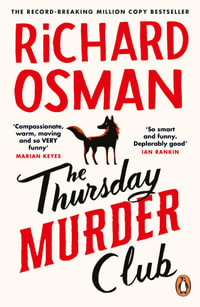The brothers of the abbey of St Martin's-in-the-Marsh pay little heed to the tales of robber baron Sir Geoffrey Mandeville's ghost galloping through the Lincolnshire fens with a retinue of ghastly horseman. They may hear the shrill blast of a hunting horn, or see the corpse candles glowing in the dark, but their comfortable life is protected by a high wall and their powerful abbot. Until Abbot Stephen, a friend of the King, is found dead and Sir Hugh Corbett, Keeper of the King's Seal, arrives to investigate.
Industry Reviews
Paul Doherty is often likened to the late Ellis Peters but the two writers have little in common except an interest in the same historical period, that of mediaeval England. Doherty shares neither Peters's romantic sensibility nor her care for the craft of writing: his sentences are at best workmanlike and at worst clumsy and ill-formed. Nevertheless, his Hugh Corbett series has received a good deal of critical acclaim, and doubtless many readers will be pleased to find another title in paperback. Corbett is the Keeper of the King's Seal, whose duties often require him to unpick the skein of murder and treachery. In this story set in the eerie atmosphere of an unlit Fen country, where the unpredictable flicker of marsh gas (the corpse candles of the title) can suggest the existence of an other-worldly reality, an Abbot has seemingly been murdered in impossible circumstances. Corbett, acting on the King's instructions, must discover how. This is a classic locked-room mystery, and is given added interest by its historical detail. The suspects include a sturdy beggar masquerading as a man possessed by a demon, a half-mad vagrant, and assorted clerics. The tale is further complicated by the relationship, apparently one of long-entrenched hostility, which existed between the dead Abbot and the lady of the adjoining manor. Political intrigue adds another dimension to the story, as the death of the Abbot is followed by those of members of his community. Poaching outlaws and smuggling landlords, the natural enemies of an encroaching monastery, prove to be more entwined with the life of the brothers than Corbett would wish, but despite all the mist raised before his eyes, truth emerges triumphant at the novel's end. (Kirkus UK)
























